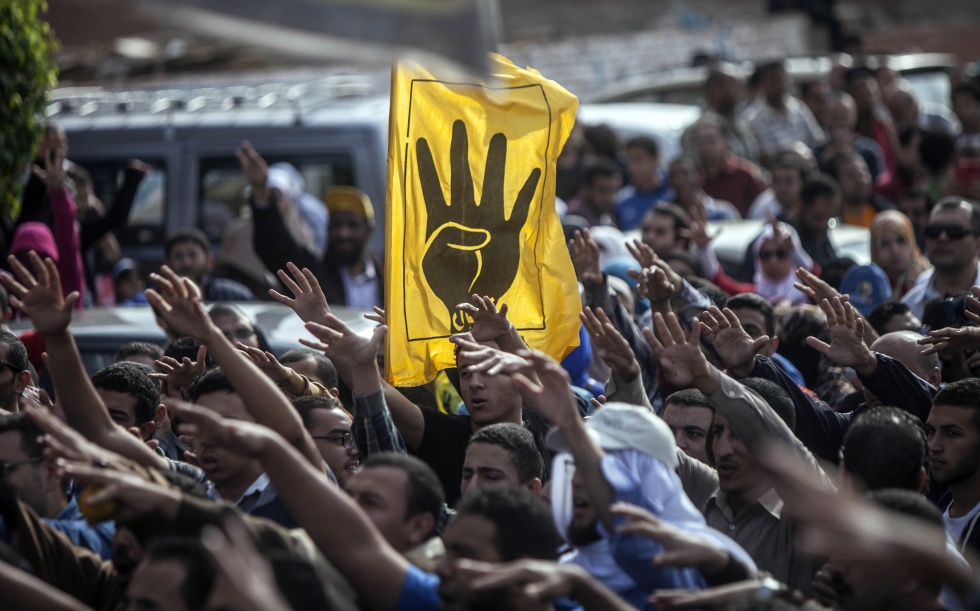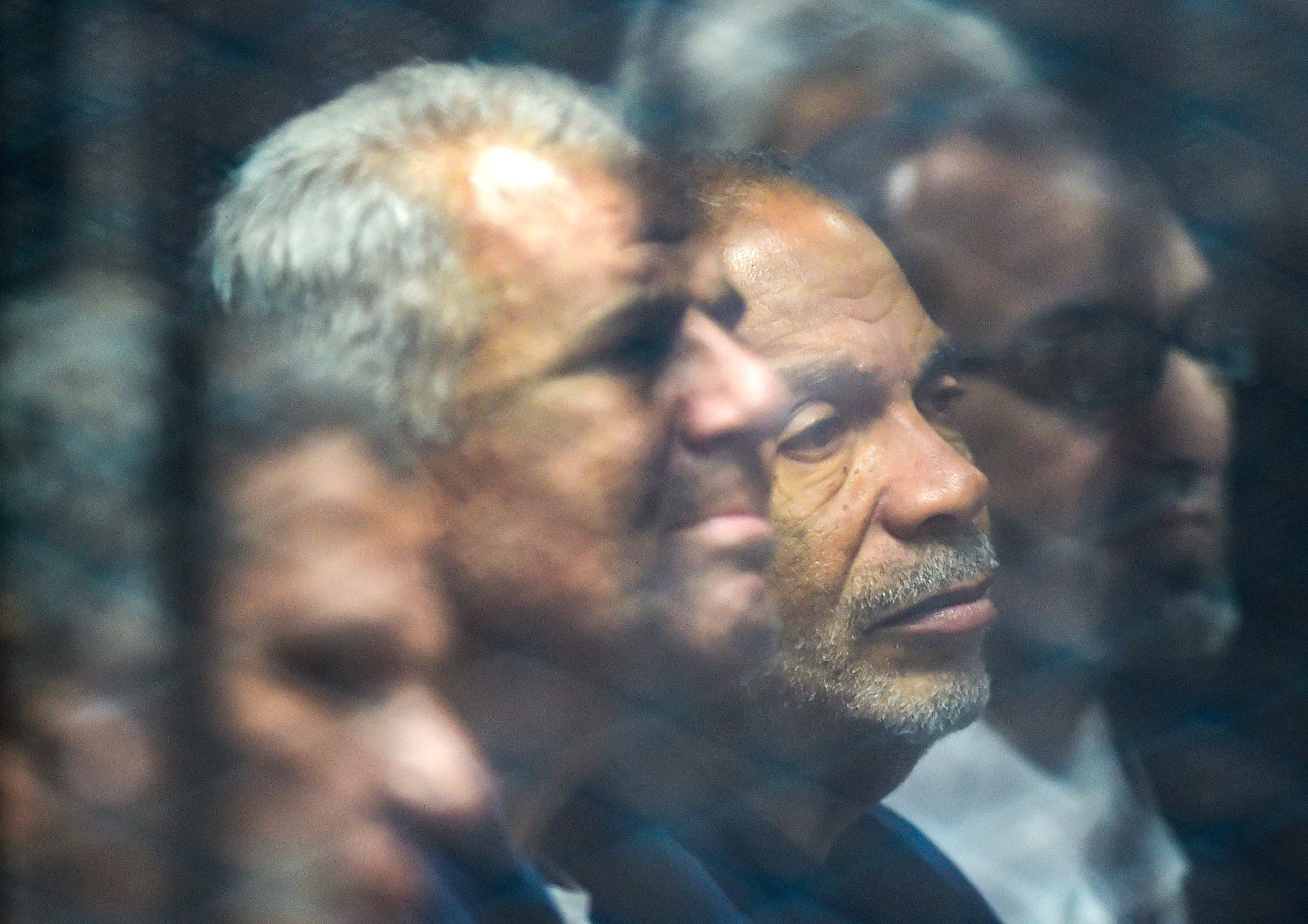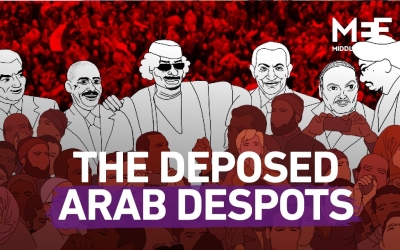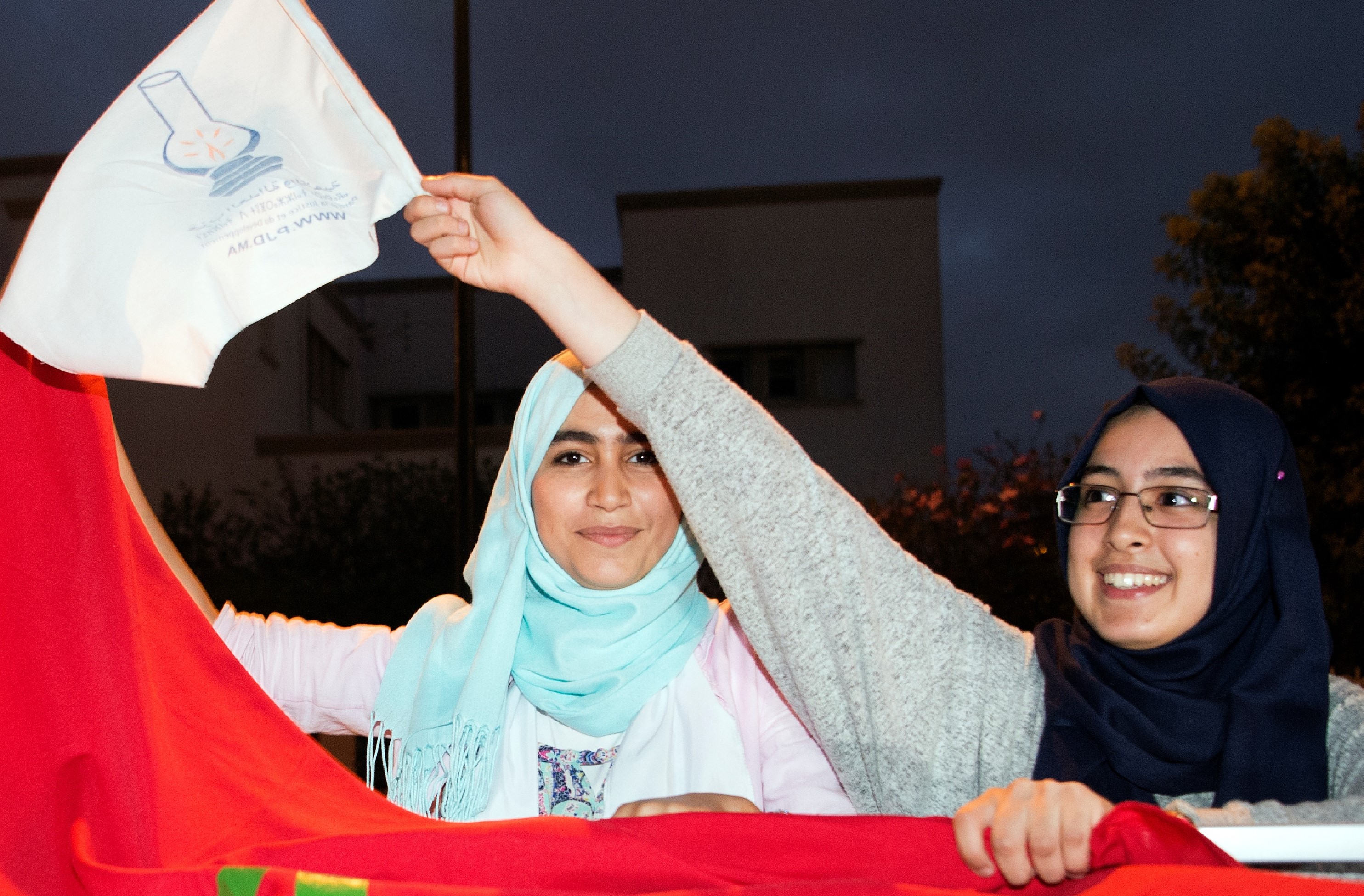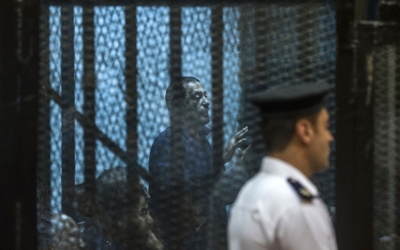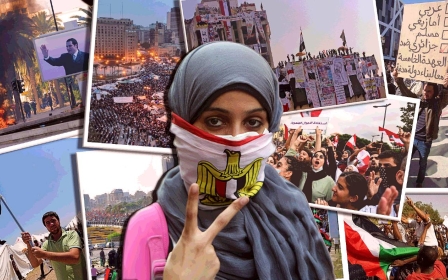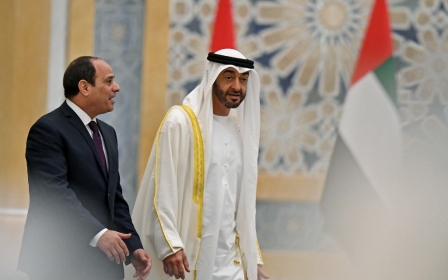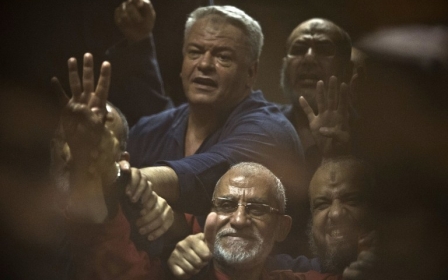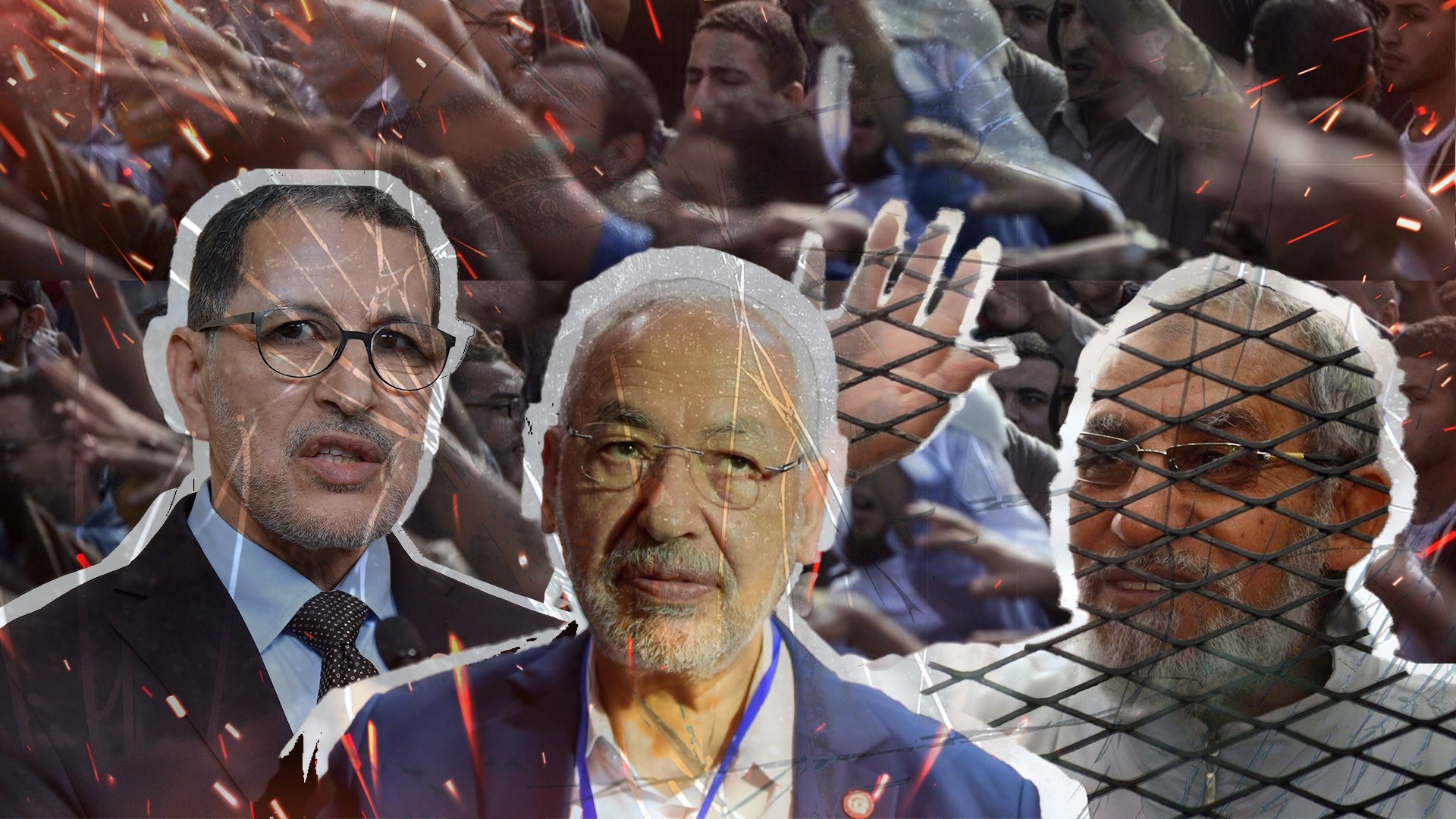
Arab Spring: The end of political Islam as we know it
Last month, Tunisia's parliamentary speaker and head of the Ennahda Party, Rached Ghannouchi, came under fire for comments he made following a meeting with the French ambassador.
Following a recent string of violent attacks, the French government cracked down on the country's Muslim community, shutting down charitable organisations, surveilling community members, including children, and interrogating them regarding their religious and political beliefs. At the same time, they demanded that community leaders adopt a pledge in support of French values and declare their disavowal of "political Islam".
New MEE newsletter: Jerusalem Dispatch
Sign up to get the latest insights and analysis on Israel-Palestine, alongside Turkey Unpacked and other MEE newsletters
The government's harsh measures prompted condemnations around the world, including calls to boycott French products in many Muslim-majority countries.
It was within this context that Ghannouchi's comments raised eyebrows across the Arab and Muslim worlds. After meeting with France's newly appointed ambassador to Tunisia, Ghannouchi asserted that domestic developments within France would not impact Tunisian-French relations, declaring "without hesitation our solidarity with the French state and the brotherly French people during the recent terrorist events, and we affirm that we are all fighting the same enemy, which is terrorism, and Tunisia faces this danger like the rest of the world".
The transformation
What surprised many observers was not that a high-ranking official in the Arab region would express such sentiments, but that it would come from the founding leader of a movement that traces its roots to the Islamic activist trend established by the Muslim Brotherhood.
As opposition movements, Islamists have long led the chorus in denouncing state repression of Muslims, whether by their own governments or other countries around the world. As a movement that has attempted to navigate the uneasy transition from outlawed opposition to ruling party over the course of the past decade, this incident raises the question of whether Ennahda's brush with political power has irrevocably transformed its ideology and practice.
It is worth examining the long-term impact that Arab uprisings have had in reshaping the nature of Islamic activism as we have come to know it
As we mark a decade since the Arab uprisings ushered in an era of unprecedented inclusion of Islamist parties within the ruling establishment of a number of states, it is worth examining the long-term impact that these recent events have had in reshaping the nature of Islamic activism as we have come to know it.
Whether it is Ennahda, which has become a permanent fixture of Tunisia’s post-authoritarian government since 2011, or the Egyptian Muslim Brotherhood, which found itself in the familiar position of persecuted opposition following the military coup and subsequent wave of repression in 2013, or the range of Islamist parties across the Arab region whose fortunes have similarly oscillated, it has become clear that the traditional mission that defined Islamic activism for much of the past half century is no more.
Instead, it has been replaced by a series of high-stakes choices, dictated in part by the lure of the nation state and its instruments of control. As a result, the shifts in the ethical commitments that define these movements have largely become informed by their political fortunes.
Changing realities
The emergence of popular Islamic activism was a uniquely 20th-century phenomenon. The decline of traditional religious institutions in much of the Islamic world, due to factors that included rapid modernisation and imperialism, saw the rise of lay intellectuals and activists, who sought to reinvigorate their societies with the ethical norms and traditional values of their Islamic faith.
The decline of traditional religious institutions in much of the Islamic world... saw the rise of lay intellectuals and activists, who sought to reinvigorate their societies with the ethical norms and traditional values of their Islamic faith
In keeping with the challenges of the time, however, they also recognised the need to adapt these values to changing social norms and new economic and political realities. The Muslim Brotherhood was founded in interwar Egypt, soon after it had achieved independence from Britain, though the country remained tightly controlled by foreign interests.
The movement's founder, Hassan al-Banna, proposed that in the absence of the strong leadership that had traditionally upheld society's moral centre, it was now incumbent upon ordinary people to promote Islamic principles in their society. This should begin with families and local communities and expand outwards to the national level.
The da'wa, or missionary call, to which members subscribed, implored followers to live according to model Islamic behaviour and advocate for those values in their schools, businesses, places of work and other institutions of public life.
From that point onward, the Islamic movement developed along two paths, though the two were closely intertwined and often indistinguishable from one another. Along one path lay the da'wa, which manifested in everyday preaching and was helped in part by the development of a robust Islamic media industry in publishing and satellite television, eventually migrating online. In most places where the Muslim Brotherhood spread, it also established charitable associations, schools, medical clinics and other social institutions, particularly in areas in which state welfare provision was lacking.
The other path resulted from the Islamic movement's recognition that public advocacy and institution-building alone were insufficient in promoting its vision for society. Rather, seeing the power that states held over citizens, especially following the emergence of centralised authoritarian and highly bureaucratised regimes, Islamic activists increasingly adopted political platforms that sought inclusion within institutions of state power.
Despite their stated commitment to gradual reformism that appeared to accept the structures and institutions of the nation state, Islamists were more often than not cast out from the realm of acceptable political actors
They competed for the leadership of student unions and professional syndicates and entered parliamentary elections where possible. Despite their stated commitment to gradual reformism that appeared to accept the structures and institutions of the nation state, Islamists were more often than not cast out from the realm of acceptable political actors and subject to the ruthless whims of the state security services, with few exceptions.
The Muslim Brotherhood and its various offshoots became a fixture of the political landscape in countries such as Jordan, Kuwait and Morocco, though under heavy constraints. While formally outlawed in Egypt, the organisation was nonetheless tolerated by the regime of Hosni Mubarak and even managed to win 88 out of 444 parliamentary seats following elections in 2005, before facing yet another crackdown.
Following a brief democratic opening in the early 1990s, a coalition of Islamist parties was poised to sweep elections in Algeria before the military intervened to cancel the results, leading to a destructive decade-long civil war. In Sudan, the Islamic movement alternated between embracing democratic inclusion and riding the coattails of the military, as it did when it supported the 1989 coup that brought the regime of Omar al-Bashir to power.
Meanwhile, authoritarian regimes in states such as Syria, Iraq, Libya and Tunisia enforced a categorical ban on Islamists that for decades sought to erase their presence from society altogether. In every case, while the path of da'wa remained relatively constant, the movement's priorities and decisions on the political front were largely determined by the opportunities available within each respective national context.
Islamists and the uprisings
Beginning in late 2010, the historic mass protests that aimed to topple dictatorships across the Arab region in the name of freedom, dignity and social justice presented Islamists with both risks and opportunities.
On the one hand, as the most organised social movements, and ones with a ready-made platform to attract supporters in the form of the da'wa and its vision of a more just and ethical society, these groups were in pole position to claim the reins of state power in the transitions to more representative rule. On the other hand, Islamists for the most part had no revolutionary credentials and had clearly tailored their activist missions in line with the realities of surviving authoritarian rule.
That reluctance was on display in decisions made by the Muslim Brotherhood's newly launched political arm, the Freedom and Justice Party (FJP), which preferred a gradual and reformist approach to the post-Mubarak transition to a revolutionary and confrontational one.
The short-lived presidency of the FJP's Mohamed Morsi was notable not in its power-hungry excesses of which he was falsely accused by liberal and leftist critics, but rather for its determination to avoid a head-on clash with the state's most powerful institutions, chiefly the military.
When the FJP-authored constitution was passed in late 2012, it enshrined the Egyptian military's privileged status and left it beyond the scope of civilian oversight. Of course, that deferential posture was not enough to spare the Muslim Brotherhood the military's wrath amid a resurgent authoritarianism in the bloody aftermath of the 2013 coup.
Mission vs ambition
Even before its epic collapse and reversion to outlaw status, the Muslim Brotherhood faced a crisis in reconciling its historic social mission with its emerging political ambitions. Would members of the organisation be required to join its party or could they express themselves freely within Egypt's burgeoning multiparty political landscape? Would internal disagreements over matters of policy be tolerated or would they be viewed as violations of the religious obligation to "hear and obey"?
Would the Muslim Brotherhood's rush to sweep every election it contested during the transition result in putting the movement's interests ahead of those of the nation in the midst of a perilous revolutionary moment? The cracks within the movement, largely kept under wraps in the past, became more visible in a series of high-profile defections and public debates on the changing nature of Islamic activism in revolutionary times.
Even before its epic collapse and reversion to outlaw status, the Muslim Brotherhood faced a crisis in reconciling its historic social mission with its emerging political ambitions
The Ennahda Party faced similar questions in Tunisia, though it addressed them in a starkly different fashion. Under Ghannouchi's leadership, the movement had internalised its belief in democracy as the basis for a sound political order decades ago, at a far earlier stage in its evolution than most other Islamist groups. Its commitment to democratic pluralism ensured that Ennahda would avoid the trappings of power during the shaky initial period of post-authoritarian rule.
Even as it won the country's first free elections in 2011, the party insisted on sharing power within a coalition government and stepped down completely following a national crisis in late 2013, perhaps fearing a similar outcome to what had transpired in Egypt just months earlier.
Further cementing its accommodationist posture, Ennahda also supported a law that shielded former regime officials from accountability and declined to include the Sharia as a source of legislation within the revised Tunisian constitution, abandoning a core Islamist tenet.
To free itself from the predictable barrage of internal critiques, at its 2016 party conference Ennahda leaders formally severed the movement's da'wa from its political activities. Likening his party to the Christian democrats of many European states, Ghannouchi declared that "we are Muslim democrats who no longer claim to represent political Islam".
Zero-sum game
It is hard to overstate just how monumental a step Ghannouchi's declaration represents. In its modest experience as a mainstream political party that has cut ties with its traditional social base and its Islamist ideological roots, Ennahda has put forward a blueprint for Islamist parties to achieve political success on the national stage.
The Party of Justice and Development (PJD) in neighbouring Morocco has followed a similar path, distancing itself from the broader religious movement from which it derived much of its support when it formed a government following its electoral success in 2011 and again in 2016. The PJD government has deflected attention from its Islamist roots by pledging to govern within the existing political system, despite its structural constraints and hostility to reforms.
The irony, it would appear, is that the more politically successful Islamists become, the more likely they are to shed any vestiges of their core ideology. To be sure, policy debates around "Islamist inclusion" as a strategy to temper these movements' ideological commitments and political ambitions are nothing new.
However, taking stock of the internal processes by which these movements accede to the pressures of playing the political game reveals that the cultural essentialism to which Islamists are often subjected by external critics has been grossly misleading.
On the other end of the spectrum, Egypt's Muslim Brotherhood continues to endure the lowest point of its storied history.
The 2013 Rabaa Massacre, in which almost 1,000 Egyptians were killed by security forces during a non-violent sit-in, stands as a symbol of the movement's renewed victimhood and the military regime's scorched earth policy to eradicate Islamism as a force in society, a central vow in President Abdel Fattah el-Sisi's rise to power.
With its institutions shut down and its leadership imprisoned or exiled, the Muslim Brotherhood has arrived at a distinct juncture in its development that has yielded a number of competing responses.
Reconciling with regimes?
Despite the cataclysmic defeats its organisation has suffered, the movement's conservative senior leadership believes the Sisi regime's current course is unsustainable, as its reliance on violent coercion continues to destabilise the country and weaken its economy.
While it is likely that the 'Islamist idea,' so to speak, will endure as a force with broad social appeal, the political actors who have been its most vociferous advocates face an existential struggle to survive the onslaught of recent years
The leadership's preferred course is one of reconciliation with the regime in the hopes of achieving a grudging co-existence not unlike that which defined the movement's relationship with the Mubarak regime. Strategically placed media leaks that such a resolution is on the horizon have emerged with striking regularity, but thus far there appears no indication that Sisi, who has brooked no dissent even within Egypt's ruling establishment, is interested in reintegrating the Islamist opposition back into the fold.
The Muslim Brotherhood's surviving leaders must also contend with widespread dissension within the movement's ranks, which includes a vocal youth faction that rejects any reconciliation with the regime, instead advocating a revolutionary path that would correct the mistakes of the post-Mubarak transition.
In social media posts and online forums, proponents of this view argue that the movement must abandon its traditional outlook toward political change that led to its conservative approach in the past. Instead, it must embrace the revolutionary spirit around which millions of Egyptians united during the height of the uprising. Critical to this viewpoint is the need to disentangle the Muslim Brotherhood's rigid hierarchical and closed organisational structure from its broader social and political mission.
But unlike the logic behind Ennahda's decision to sever da'wa from politics, this view believes such a move is imperative to the development of a mass movement in order to upend the existing power structure, not cozy up to it.
The irony, it would appear, is that the more politically successful Islamists become, the more likely they are to shed any vestiges of their core ideology
Added to these is yet a third faction, made up largely of disillusioned members on the movement's fringes, which believes that a traditional Islamist project that is inherently tied to the fate of the modern nation state is doomed to fail. Given the precarious condition of most states in the region and their inability to remedy the critical challenges faced by their citizens, this group argues that seeking to create an Islamically based political order within existing power structures is a futile endeavour.
Though small in number and representing mainly an intellectual trend rather than a broad-based movement, this faction maintains that the Muslim Brotherhood's dramatic fall from grace presents a unique opportunity to explore bold new ideas that address the root problems afflicting not only Egyptians, but societies throughout the global south: ethnonationalist and sectarian violence, imperialism, neoliberal economic exploitation and wealth inequality, food insecurity, environmental degradation, and so on.
Absent the distraction of competing for political power within the current structure, proponents believe that the Muslim Brotherhood, or what's left of it, should construct its mission anew, unencumbered by its ideological tradition or the ever-changing demands of partisan politics.
Though it is unlikely to have an impact on events anytime in the near future, the dynamism expressed in these early conversations is likely to inform the long-term trajectory of Islamist - or, perhaps more accurately, post-Islamist - intellectual thought.
Going forward
In the near term, however, it appears that one way or another the fate of Islamists necessitates their abandonment of long-held beliefs and practices. In the best of cases, successful integration within the narrow confines allowed by some states has demonstrated that nothing short of reconstituting the traditional Islamist mission as a 21st-century political party like any other will suffice.
That gives little reason for optimism, as the power structures within which these parties operate often leave them detached from their base of support within society, prone to corruption and forced to compromise the ethical basis around which they formed.
The Ennahda Party leader's recent support for France's crackdown on Muslims elicited outrage across the Islamic world, but it was only the latest in a series of incidents that also drew the ire of many within the party's rank-and-file, resulting in a number of very public resignations.
Party figures who stepped down in recent months expressed deep misgivings over some of the Ennahda leadership's actions and policy decisions, particularly their departure from the movement's core values.
Elsewhere, the success of counter-revolutionary forces in stemming the tide of structural change has left Islamist forces out in the cold. The regional project advanced in large measure by the governments of Saudi Arabia and the United Arab Emirates, along with their local clients, has all but eroded the space for the precarious, though relatively stable, co-existence that typified the Islamist experience under authoritarian rule for roughly half a century.
As the resurgent dictatorship in Egypt and the destructive civil wars in Syria, Libya and Yemen aim to consolidate a new authoritarian order, there is little room for popular social movements with political aspirations, whether Islamist or otherwise.
While it is likely that the "Islamist idea," so to speak, will endure as a force with broad social appeal, the political actors who have been its most vociferous advocates face an existential struggle to survive the onslaught of recent years, with many having been killed, imprisoned or forced into exile.
The circumstances around which it has occurred may be radically different, but the effect is nonetheless the same as elsewhere: the forced separation of the Islamist movement's core mission from its political activism. Whether this represents the latest stage in the evolution of Islamism as a viable political alternative or spells its demise remains to be seen.
The views expressed in this article belong to the author and do not necessarily reflect the editorial policy of Middle East Eye.
This article is available in French on Middle East Eye French edition.
Middle East Eye delivers independent and unrivalled coverage and analysis of the Middle East, North Africa and beyond. To learn more about republishing this content and the associated fees, please fill out this form. More about MEE can be found here.


